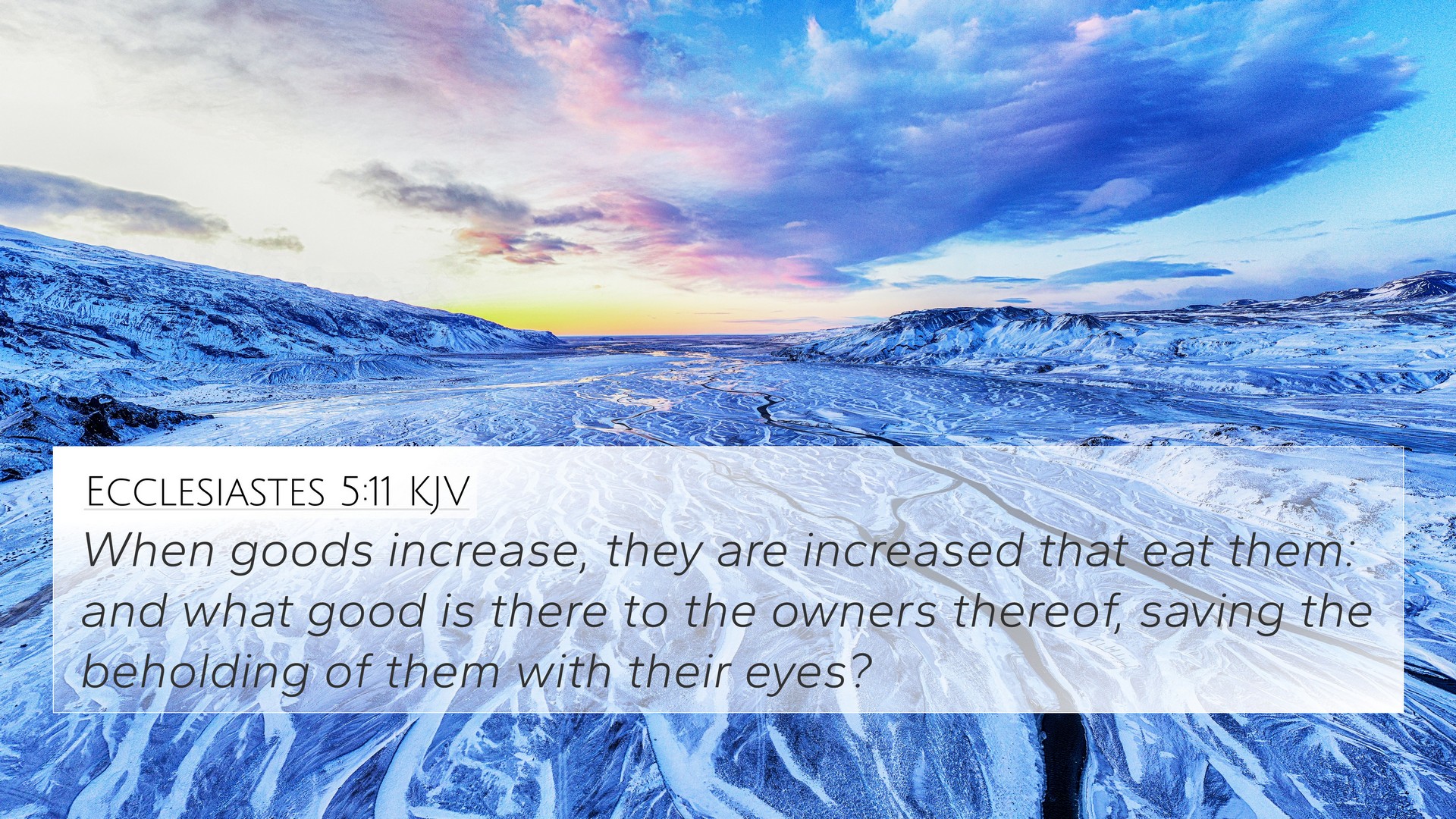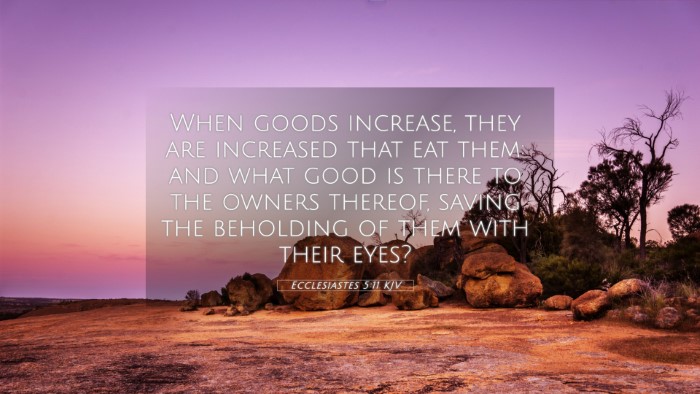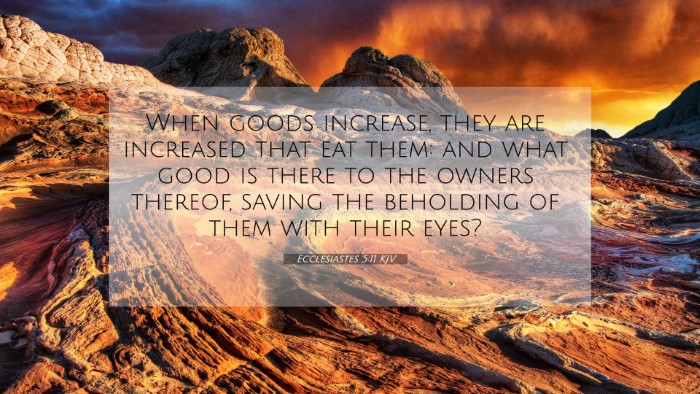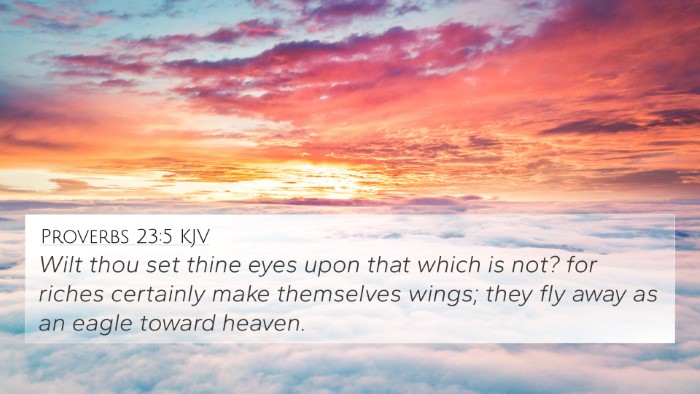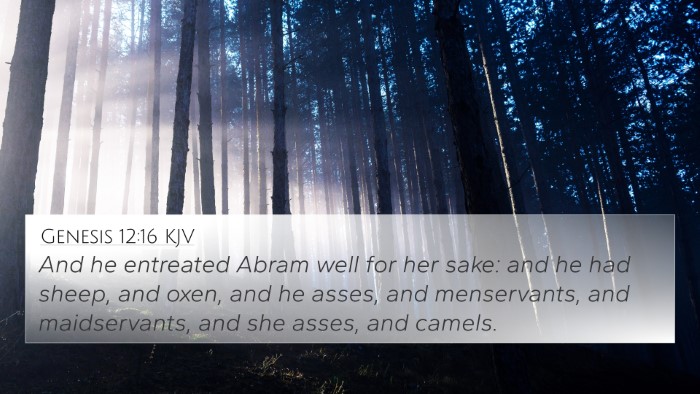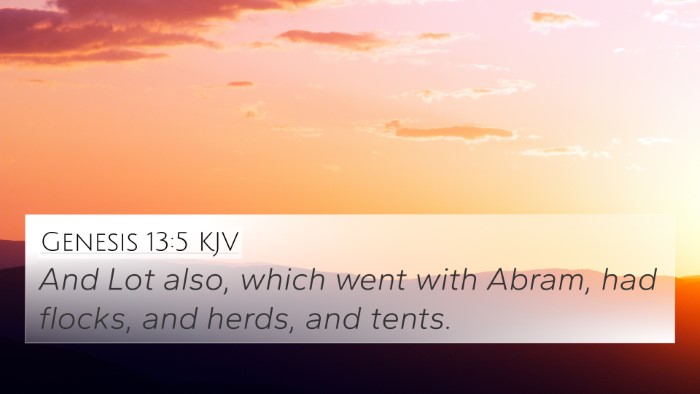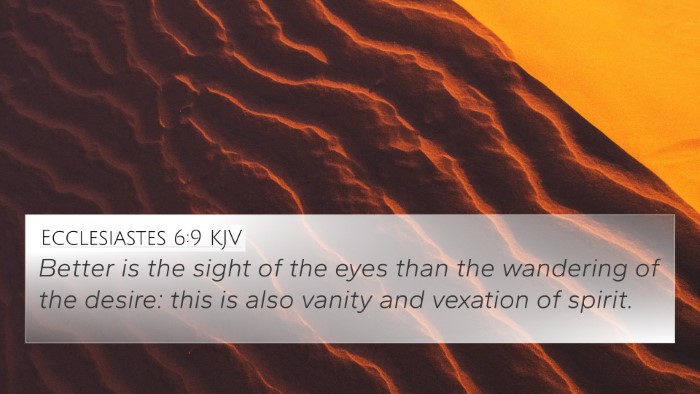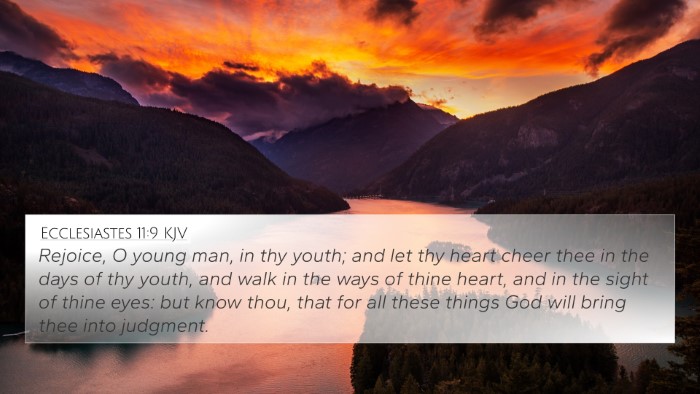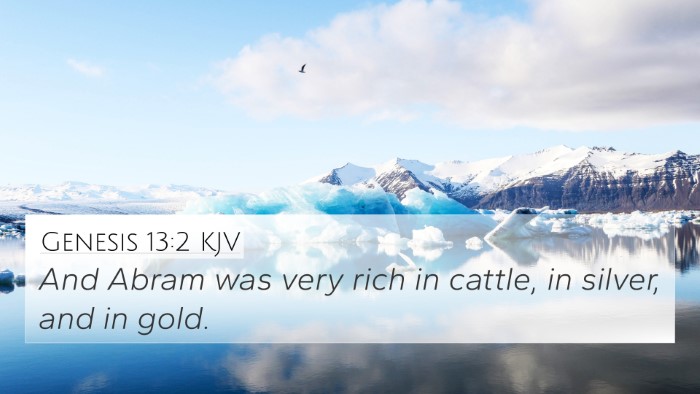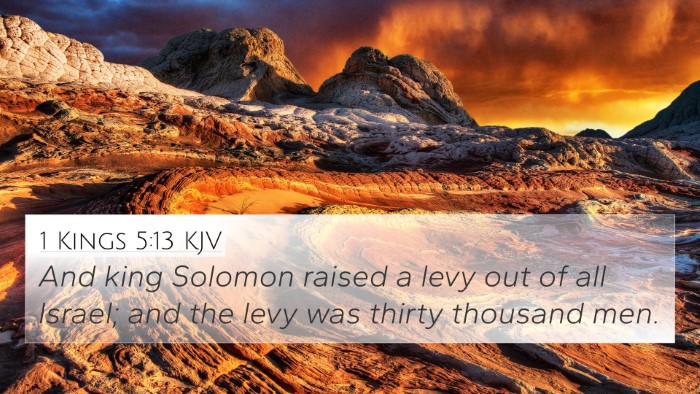Understanding Ecclesiastes 5:11
Ecclesiastes 5:11 states: “When goods increase, they increase who eat them; and what advantage is there to the owners except to see them with their eyes.” This verse encapsulates profound insights into the nature of wealth and the distractions it brings, emphasizing the transient nature of material possessions.
Summary of Insights
The essence of Ecclesiastes 5:11 serves as a reminder that accumulating wealth often leads to increased burdens and responsibilities, rather than true satisfaction. Each of the noted commentators provides unique perspectives:
- Matthew Henry: He highlights the ironic reality that as wealth grows, so do the demands placed upon it and those who desire it. Wealth can lead to anxiety rather than joy.
- Albert Barnes: Barnes views the statement as a poignant observation that the benefits of wealth are often overshadowed by the number of people who lay claim to it, thus rendering owners joyless in their pursuit.
- Adam Clarke: Clarke emphasizes the futility of chasing after wealth, stating that the abundance of material goods comes at the cost of peace and contentment.
Key Themes and Messages
This verse directs the reader towards a deeper understanding of the following themes:
- Contentment: The pursuit of material wealth is often unfulfilling and does not guarantee happiness.
- Value of Life: True value lies not in what is owned, but in how one lives and perceives the world.
- Responsibility and Consequence: Increased wealth may bring increased responsibilities.
Bible Verse Cross-References
Understanding Ecclesiastes 5:11 can be enriched through different Bible verse cross-references that provide context and deepen the exploration of its meaning:
- Proverbs 23:4-5: “Do not toil to acquire wealth; be discerning enough to desist. When your eyes light on it, it is gone, for suddenly it sprouts wings, flying like an eagle toward heaven.”
- 1 Timothy 6:9-10: “But those who desire to be rich fall into temptation, into a snare, into many senseless and harmful desires that plunge people into ruin and destruction.”
- Luke 12:15: “And he said to them, 'Take care, and be on your guard against all covetousness, for one’s life does not consist in the abundance of his possessions.'”
- Matthew 6:19-21: “Do not lay up for yourselves treasures on earth, where moth and rust destroy and where thieves break in and steal, but lay up for yourselves treasures in heaven...”
- Ecclesiastes 2:21: “For there is a man whose labor is with wisdom, knowledge, and skill; yet he must leave his heritage to a man who has not labored for it. This also is vanity and a great evil.”
- James 5:1-3: “Come now, you rich, weep and howl for the miseries that are coming upon you. Your riches have rotted, and your garments are moth-eaten.”
- Hebrews 13:5: “Keep your life free from love of money, and be content with what you have, for he has said, ‘I will never leave you nor forsake you.’”
Comparative Bible Verse Analysis
As we consider these Bible verses that relate to each other, it's clear that the theme of wealth and its impact resonates throughout Scripture. A comparative Bible verse analysis can reveal a consistent message about the limitations and dangers of greed:
- Rich Fool Parable (Luke 12:16-21): This parable further stresses the foolishness of storing up riches for oneself without regard for one's mortality.
- The Beatitudes (Matthew 5:3-12): Illustrates that those who are poor in spirit and those who mourn are blessed, contrasting with the pursuit of physical wealth.
- Source of True Treasure (Colossians 3:1-2): Encourages believers to set their minds on things above, rather than earthly possessions.
Tools for Bible Cross-Referencing
Utilizing effective tools for bible cross-referencing can enhance one’s understanding:
- Bible Concordance: Helps in identifying specific terms across different verses.
- Bible Cross-Reference Guide: Provides a roadmap for navigating related verses.
- Bible Reference Resources: Offers insight into themes and connections across scriptures.
Applying Ecclesiastes 5:11 Today
The relevance of this verse persists in modern society's consumer-driven culture. It invites reflection on:
- Spiritual Health: Encouraging individuals to assess what truly enriches their lives beyond material wealth.
- Community Dynamics: Considering how our wealth can impact those around us—who benefits from what we own.
- Life Balance: Striving towards a balance between financial stewardship and spiritual fulfillment.
Conclusion
In sum, Ecclesiastes 5:11 serves as a timeless admonition against the seduction of wealth, reminding us that true satisfaction is found in living a life that values spiritual wealth over material gain. Engaging with cross-references and thematic connections within Scripture deepens our understanding and encourages a reflective conversation regarding the role of wealth in our lives.
